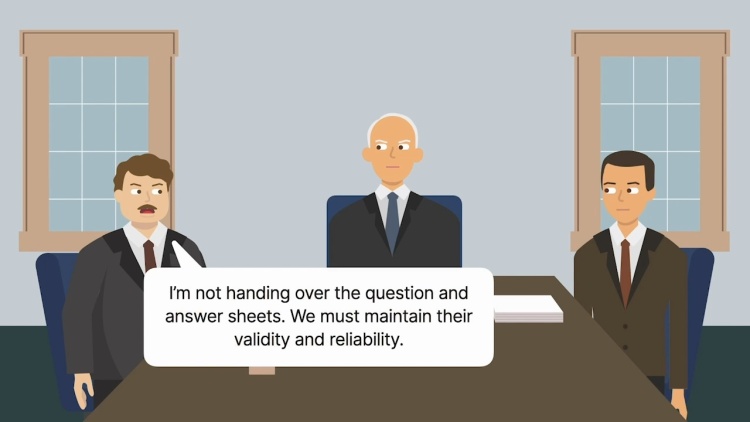Detroit Edison Co. v. National Labor Relations Board
United States Supreme Court
440 U.S. 301 (1979)
- Written by Rose VanHofwegen, JD
Facts
Detroit Edison Company (DE) (defendant) used aptitude tests in its hiring process, promising applicants it would keep scores confidential. Ten existing union-represented employees applied for six open positions. But none passed the aptitude test, so DE filled the positions with outside hires. The union filed a grievance and demanded DE produce the test information. DE produced some information but refused to produce the questions, answer sheets, and scores without each applicant’s consent. The company explained that developing the test was expensive, keeping the questions secret was essential to its efficacy, and the company had promised applicants confidentiality. The company also argued that keeping its tests confidential comported with federal civil-rights laws favoring valid, standardized, and nondiscriminatory hiring practices. Finally, the company presented evidence that disclosing individual test scores had caused harassment of examinees who received lower scores in the past and resulted in their leaving the company. The union essentially conceded the importance of confidentiality but argued it needed the information to prepare for arbitration of the grievance. The National Labor Relations Board (plaintiff) found that the questions and scores would be relevant and helpful for processing the grievance and ordered their disclosure to the union, subject to confidentiality restrictions. After the Sixth Circuit confirmed the board order, the Supreme Court granted review.
Rule of Law
Issue
Holding and Reasoning (Stewart, J.)
Dissent (White, J.)
Dissent (Stevens, J.)
What to do next…
Here's why 899,000 law students have relied on our case briefs:
- Written by law professors and practitioners, not other law students. 47,000 briefs, keyed to 994 casebooks. Top-notch customer support.
- The right amount of information, includes the facts, issues, rule of law, holding and reasoning, and any concurrences and dissents.
- Access in your classes, works on your mobile and tablet. Massive library of related video lessons and high quality multiple-choice questions.
- Easy to use, uniform format for every case brief. Written in plain English, not in legalese. Our briefs summarize and simplify; they don’t just repeat the court’s language.





